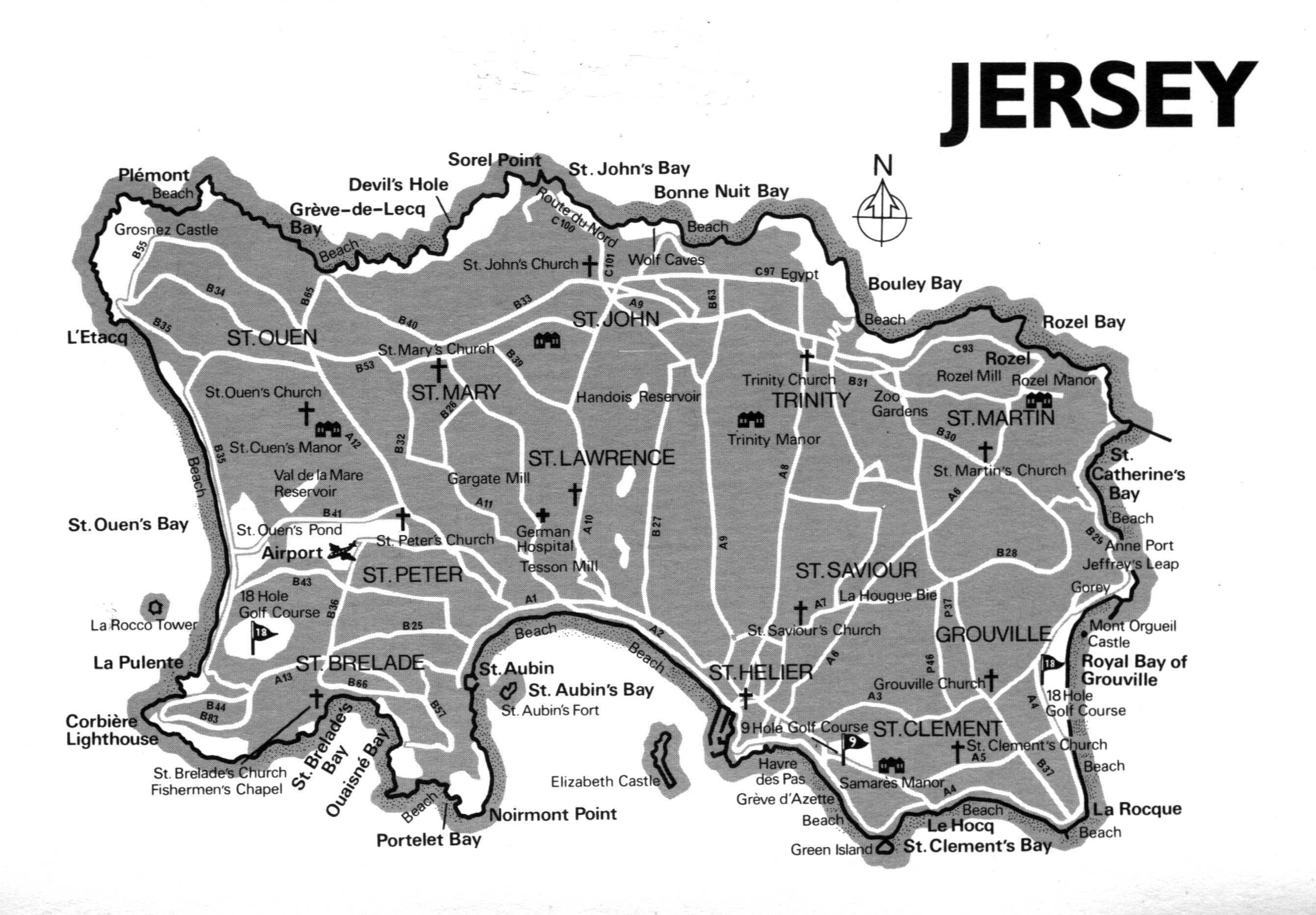
JERSEY ISLAND
Jersey is one of a group of rocky islands known as the Channel Islands which lie in the great bay of St Michael in Northern France, The bay which separates Normandy from Brittany. At one time, it is claimed, it formed a part of the mainland of France. Jersey is the largest of the Channel Islands. It is just 14 miles (22.5 km) from the coast of France. It is 96 miles (154 km) from Weymouth, England, across the English Channel.
The splendidly rugged precipices of
the north coast of Jersey honeycombed with innumerable caves are from
258 to 460 feet (76 to 1400 metres) high and from them the land
slopes gently till it reaches sea-level on the sandy beaches of the
south coast.
Thanks to the Gulf Stream, Jersey enjoys exceptionally mild winters. The rainfall is high, the tides are exceptionally high and low at the time of the full moon, and especially at the Equinox. Sunshine often equals and sometimes surpasses that of the British Isles.
LaRocque, where my father Nicolas de Ste. Croix was born, is located on the southeast corner of the Island. The tides here are unusual in that at low tide the sea can recede for two miles (3.2 km). In 1985 the high tides came up over the breakwater, into yards, homes on the beach and even up over the road. There used to be a great deal of fishing in the area but fishing at low tide on the rocks can be dangerous as the tides rise very rapidly.
There are several Martello towers on this coast. These towers actually circled the Island as a means of defence in earlier centuries.
The Island is approximately 9 miles (14.5 km) long, 5 miles (8 km) from north to south and covers 45 sq. miles (116.5 sq km). The Island has been too small to divide into counties. It is divided into 12 parishes, most of them named after Saints. Each parish has its own special crest. Each parish has a constable as a head who represents the parish in the Island's government.
The parliament of Jersey is called "The States". It is made up of 53 elected members. Its assembly is presided over by a Civil Head known as the Bailiff of Jersey. He also holds the office of Chief Justice. He is oppointed by the Crown of England together with the Attorney General and the Solicitor General. These three along with the Anglican Dean of Jersey sit in the "The States" but have no vote.
The 53 democratically elected members are; 12 senators, 12 constables, 29 deputies, 13 of whom represent St Helier the capital of Jersey. Jersey has its own constitution. The Queen of England is represented by a Lieutenant Governor appointed by the Crown. Jersey does not have representatives at Westminister. The population of Jersey averages 70,000 or more. It doubles that in the tourist season. Today land is at a premium, Jersey has over 1,000 residents to the square mile. Land is not sold to non-residents unless there are no bids from residents for property available for sale. Jersey has had a long history of independence since the time of the Normans, enjoying home rule for over 706 years. This was changed for a period of over five years when the Germans occupied the Island during World War II. The history of the Island has been written by many authors over the centuries. Norman-French, which was the language for centuries, hardly exists on the island today.
The Channel Islands have been associated with the Crown of England since October 14,1066, when Duke William II of Normandy conquered England in the battle of Hastings. Jersey and the other Channel Islands had been added to the Duchy of Normandy in 933. My father always claimed that he was a Jerseyman of Norman descent.